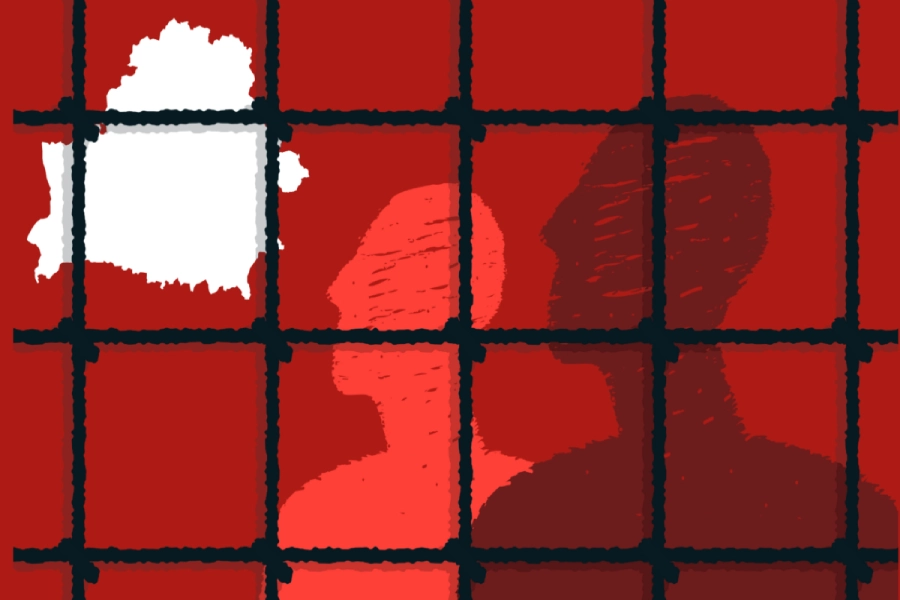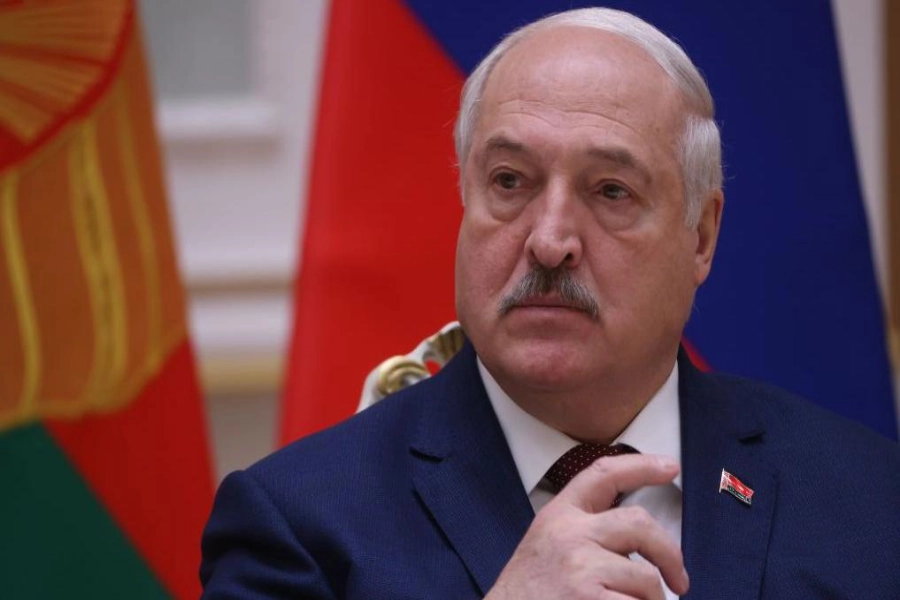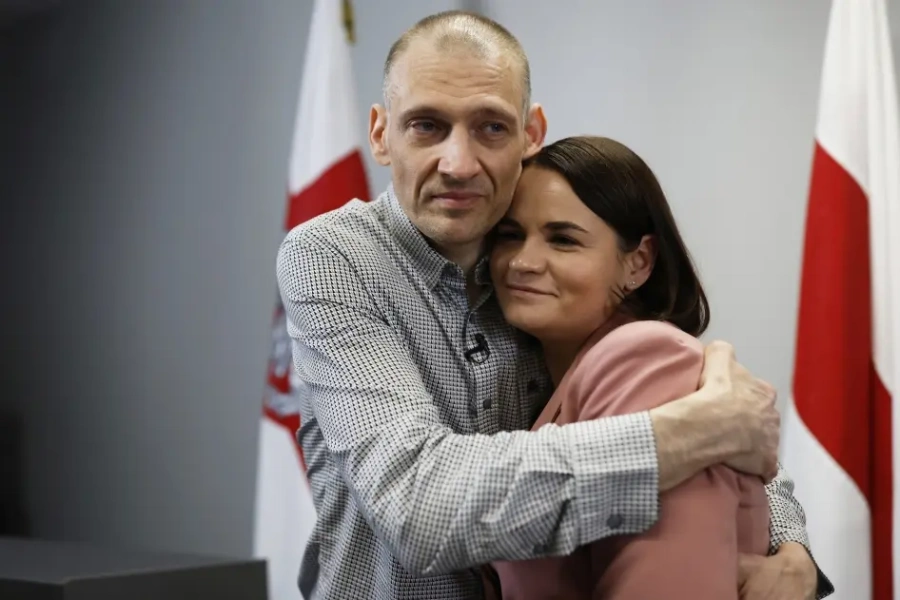The situation of political prisoners Belarus is a pressing international human rights concern. Thousands of dissidents, activists, and opposition figures have been detained under harsh conditions by the Lukashenko regime. This article explores the current status of political prisoners in Belarus, their treatment in detention, and the broader legal implications from an American and international law perspective.

Background on Political Prisoners in Belarus
Political prisoners in Belarus are individuals detained for their opposition to President Alexander Lukashenko’s authoritarian government. Since the disputed 2020 presidential election, crackdowns on dissent have intensified. Activists like Siarhei Tsikhanouski, who was sentenced to 18 years in prison, exemplify the severe repression faced by opposition figures. Despite international condemnation, including from the US and European Union, the Belarusian government continues to detain over 1,100 political prisoners.
Conditions Faced by Political Prisoners
Reports from former prisoners reveal inhumane conditions. Prisoners endure isolation, limited legal access, restricted communication, and poor hygiene. Political detainees are often punished more harshly than violent criminals. Siarhei Tsikhanouski, for example, was denied visits from lawyers and family for years and subjected to excessive cleaning duties despite already clean cells. These practices violate basic human rights standards outlined by international conventions.
Legal Framework: International Human Rights Law
Belarus is a party to several international treaties, including the International Covenant on Civil and Political Rights (ICCPR), which guarantees fair trial rights, freedom of expression, and protection from torture and arbitrary detention. The treatment of political prisoners contradicts these obligations. Arbitrary arrests and closed trials breach Article 9 and Article 14 of the ICCPR, while the denial of basic necessities violates protections under Article 7.
The United Nations and human rights organizations have repeatedly called for the release of political prisoners and reforms in Belarus. However, Lukashenko’s government continues to ignore these demands, further isolating Belarus from the international community.
U.S. Legal and Diplomatic Response
From the American legal and diplomatic standpoint, the situation in Belarus poses challenges and opportunities. The US government has imposed sanctions on Belarusian officials responsible for human rights abuses, aiming to pressure the regime to improve conditions and release political prisoners. These sanctions target individuals, businesses, and sectors linked to repression.
Moreover, the US government supports Belarusian civil society through funding and diplomatic engagement. The Biden administration has publicly called for the release of political prisoners and condemned Lukashenko’s crackdown. The case of Siarhei Tsikhanouski, released following US mediation, highlights the potential impact of American diplomacy.
Possible Legal Actions in the U.S.
In the U.S., victims of human rights abuses abroad sometimes pursue legal remedies through the Torture Victim Protection Act (TVPA) and the Alien Tort Statute (ATS). While these laws rarely result in convictions against foreign officials due to sovereign immunity and political complexities, they symbolize the U.S. commitment to human rights accountability. American courts could serve as venues for truth and justice for Belarusian political prisoners if evidence and jurisdictional requirements are met.

Challenges in Securing Justice
Despite international laws and U.S. sanctions, achieving justice for political prisoners remains difficult. Belarus’s close ties with Russia provide political cover for Lukashenko. The Russian government’s support undermines international pressure and enables continued repression.
Additionally, political prisoners often face secret trials with limited transparency, making evidence gathering and legal advocacy challenging. The regime’s use of forced confessions and propaganda campaigns further complicates efforts to hold perpetrators accountable.
The Role of International Organizations and Civil Society
International organizations like Amnesty International, Human Rights Watch, and the United Nations Human Rights Council actively document abuses and advocate for prisoners’ release. They also push for international investigations and resolutions condemning Belarus.
Civil society, both inside Belarus and among the diaspora, plays a critical role in keeping the plight of political prisoners in global awareness. Sviatlana Tsikhanouskaya, the exiled opposition leader, continues to campaign for democratic reforms and the liberation of detainees.
Conclusion
The plight of political prisoners Belarus reflects the broader struggle for democracy and human rights in authoritarian regimes. While international law provides a clear framework condemning arbitrary detention and inhumane treatment, enforcement remains a challenge.
The United States, through diplomatic pressure, sanctions, and legal tools, plays a vital role in supporting Belarusian dissidents and advocating for justice. However, lasting change depends on a collapse of authoritarian support networks and sustained international solidarity.
For now, the courage of prisoners like Siarhei Tsikhanouski and the persistence of activists like Sviatlana Tsikhanouskaya remain symbols of hope and resilience in the fight for freedom.
FAQ
Q1: Who are political prisoners in Belarus?
A: They are individuals detained for opposing the Belarusian government, often activists, journalists, and opposition leaders.
Q2: How many political prisoners are currently in Belarus?
A: Estimates suggest over 1,100 political prisoners remain detained as of 2025.
Q3: What international laws protect political prisoners?
A: Treaties like the ICCPR protect against arbitrary detention, guarantee fair trial rights, and prohibit torture.
Q4: How does the U.S. respond to the situation?
A: The U.S. imposes sanctions, supports civil society, and engages diplomatically to pressure Belarus to improve human rights.
Q5: Can political prisoners seek justice in U.S. courts?
A: There are legal avenues like the Torture Victim Protection Act, but practical obstacles exist due to jurisdiction and immunity.
Q6: What conditions do political prisoners face?
A: Harsh isolation, denial of legal counsel, poor hygiene, and punitive measures beyond normal prison protocols.
Q7: Why is Belarus resistant to international pressure?
A: Close ties with Russia and internal political control reduce the regime’s incentives to comply with human rights demands.
Q8: Who is Siarhei Tsikhanouski?
A: A former blogger and opposition figure sentenced to 18 years in prison, recently released after U.S. mediation.
Q9: What role does Sviatlana Tsikhanouskaya play?
A: She is the exiled opposition leader continuing to campaign for political reform and prisoner releases.
Q10: What is the future outlook for political prisoners in Belarus?
A: Dependent on international pressure, regional politics, and internal opposition strength; progress remains uncertain.

